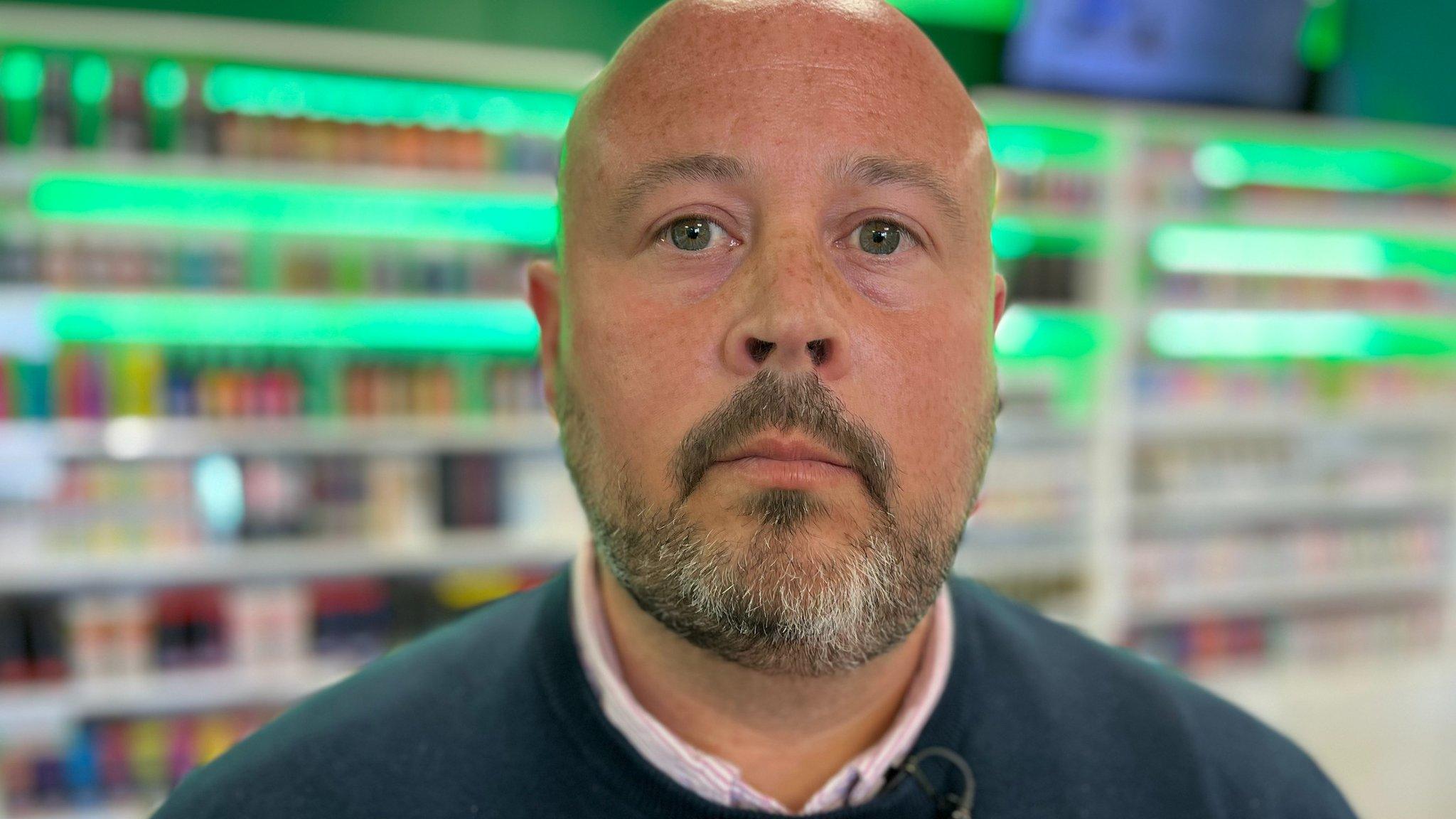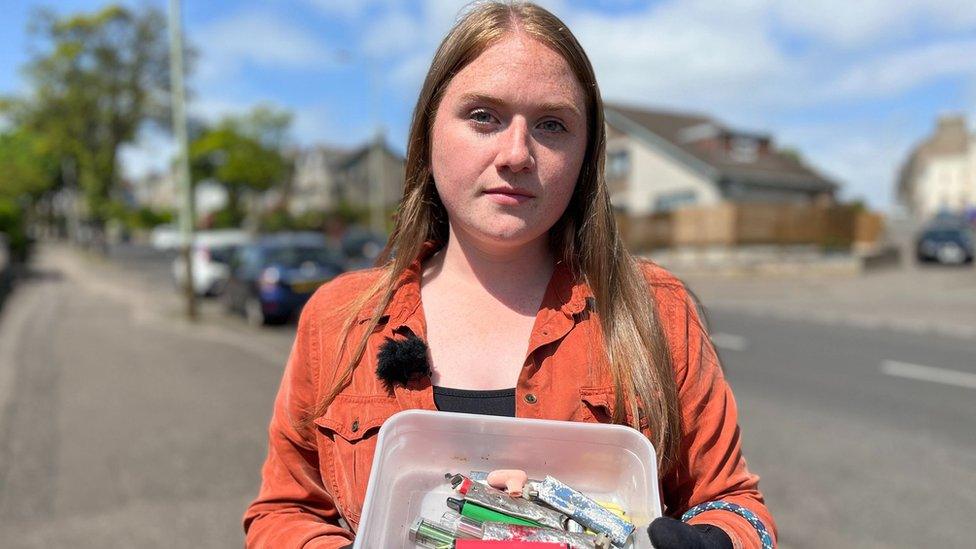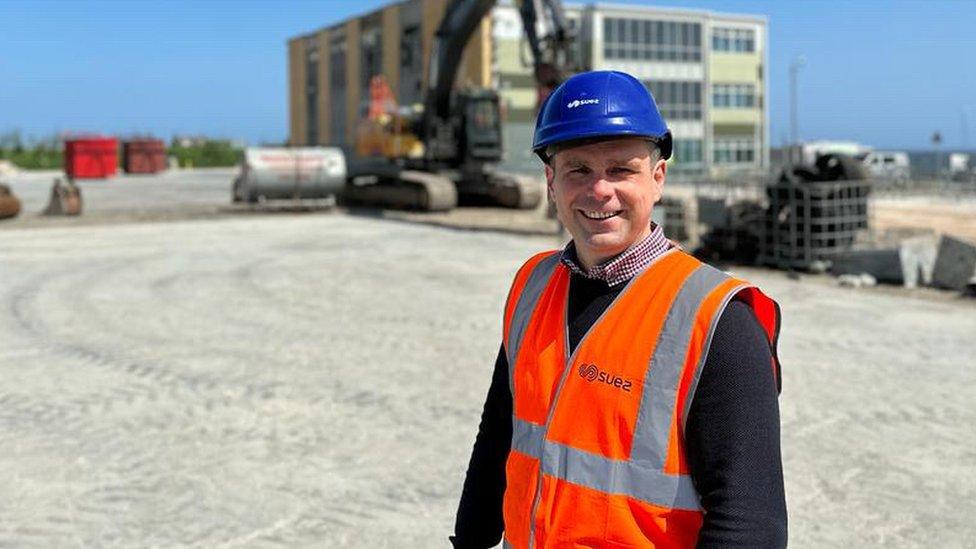Vape store boss supports ban on disposables
- Published
- comments

Doug Mutter wants ministers to consider the impacts of a ban
A leading retailer and manufacturer of vaping products says he would support a ban on disposable vapes as long as it did not create a black market.
Doug Mutter, of VPZ in Edinburgh, said a ban in Australia had led to unsafe products being sold there illegally.
He insists the industry recognises that the environmental impact of single use products needs to be addressed.
An urgent review ordered by the Scottish government is to report within days.
It was commissioned after a campaign by climate activist Laura Young who had been collecting dozens of disposable vapes each day while walking her dog Cooper in Dundee.

Laura Young has been collecting vapes on daily dog walks
The review is likely to quantify the scale of the problem and lay out the options available to ministers.
Disposable vapes are a problem because they contain lithium batteries which should be taken to a recycling facility for disposal.
But millions are either discarded or thrown into bins each year where they can cause a fire at processing facilities.
They are also easily accessible to young people and health professionals have warned of the damage they might be causing to children's lungs.
Refillable vapes are available which are much cheaper to use in the long-term and have less of an environmental impact.
VPZ has 150 stores throughout the UK.
Company director Doug Mutter - who is also the director of the UK Vaping Industry Association - said disposables have a place for smokers who would like to try vaping but do not want to invest in reusable kit.
He acknowledges the environmental impact of them and their attractiveness to young people who do not already smoke.
Mr Mutter said: "For me, there should be a ban on disposables that we would support if there were proper punishments and policing put in place to enforce the ban and ensure that a black market doesn't bubble up."
Enforcement should be funded by a licensing scheme, he said, which retailers would have to be a part of to sell vaping products.
'New problem'
Campaigner Laura Young agrees with the need for a ban and says she is still collecting dozens off the streets every day.
She describes disposable electronic waste as "a very new problem" and wants a ban to set a precedent against single use electronics for other uses.
Her campaigning led the Scottish government to order an urgent environmental review.
Ms Young said: "There also needs to be interim solutions. We need people to know there's a battery inside these things so please don't chuck it in the bin."

Colin Forshaw is having to oversee the rebuild of a destroyed recycling plant
Along with the litter problem, disposable vapes are a big issue because they contain a small battery which can easily become damaged during waste collection and processing.
That creates a significant fire risk identified as one of the most likely causes of a blaze which destroyed a recycling facility in Aberdeen last year.
More than 100 firefighters were involved in tackling the fire which took hold in under 10 minutes.
Colin Forshaw, who runs the Suez plant, said: "I think education is absolutely vital to let people know about the dangers of lithium batteries and vapes going into the wrong container.
"When they become damaged they can then spontaneously combust and start fires. If that happens within recycling materials it can then lead to large-scale fires, as we've seen."